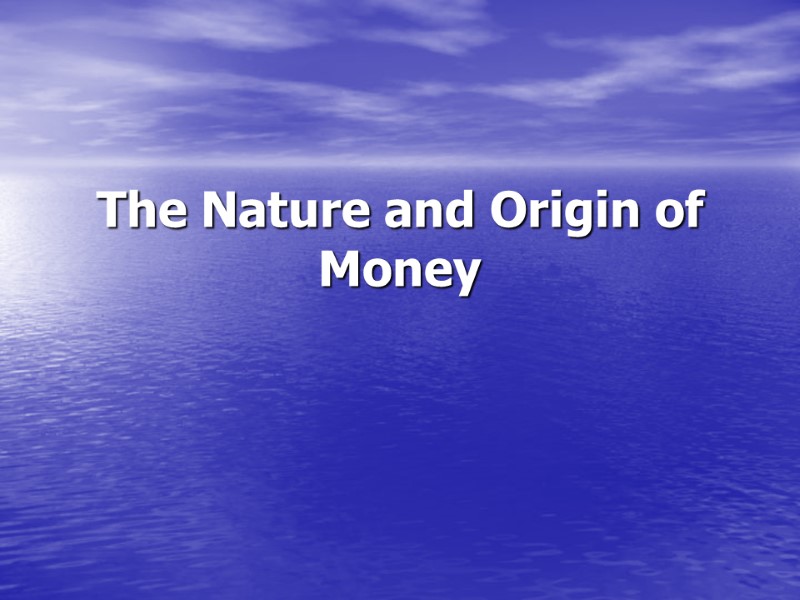 The Nature and Origin of Money
The Nature and Origin of Money
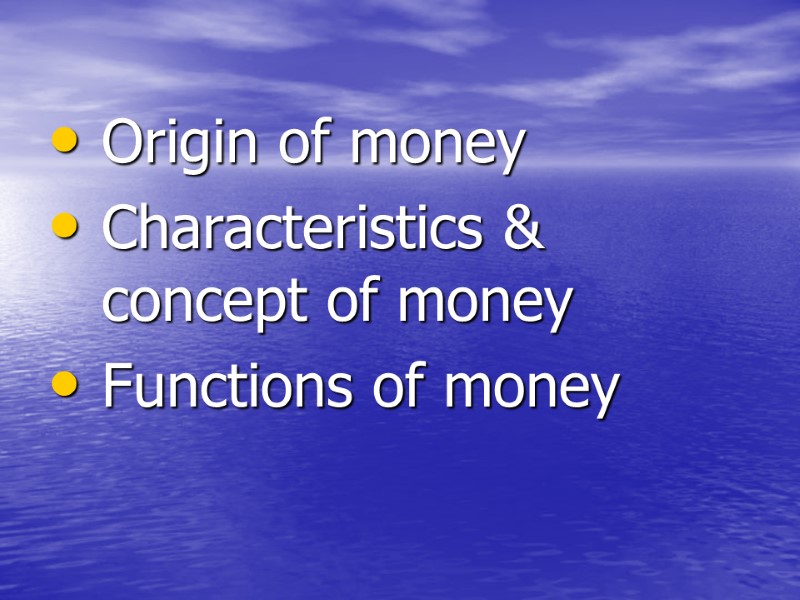 Origin of money Characteristics & concept of money Functions of money
Origin of money Characteristics & concept of money Functions of money
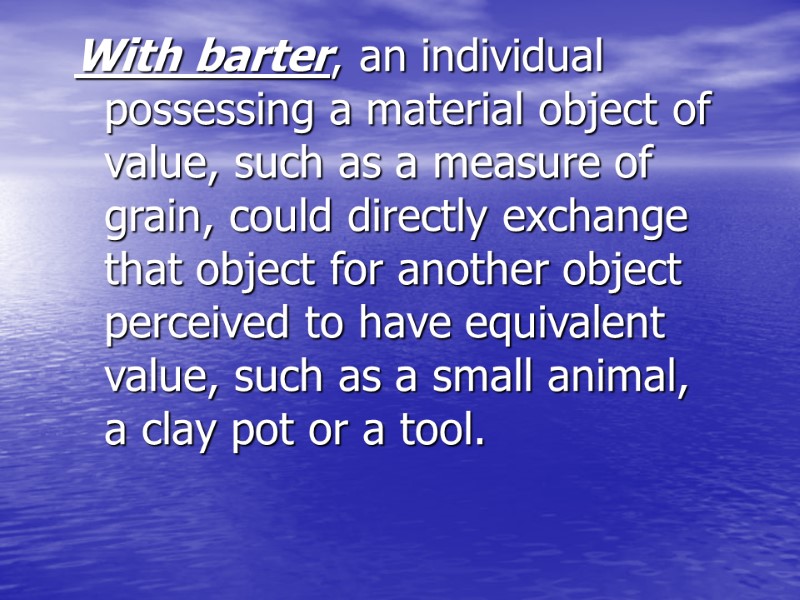 With barter, an individual possessing a material object of value, such as a measure of grain, could directly exchange that object for another object perceived to have equivalent value, such as a small animal, a clay pot or a tool.
With barter, an individual possessing a material object of value, such as a measure of grain, could directly exchange that object for another object perceived to have equivalent value, such as a small animal, a clay pot or a tool.
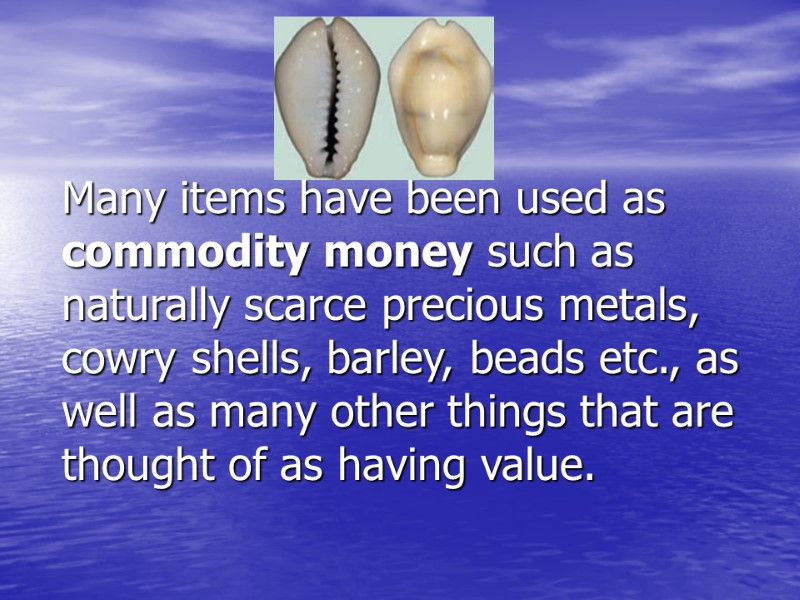 Many items have been used as commodity money such as naturally scarce precious metals, cowry shells, barley, beads etc., as well as many other things that are thought of as having value.
Many items have been used as commodity money such as naturally scarce precious metals, cowry shells, barley, beads etc., as well as many other things that are thought of as having value.
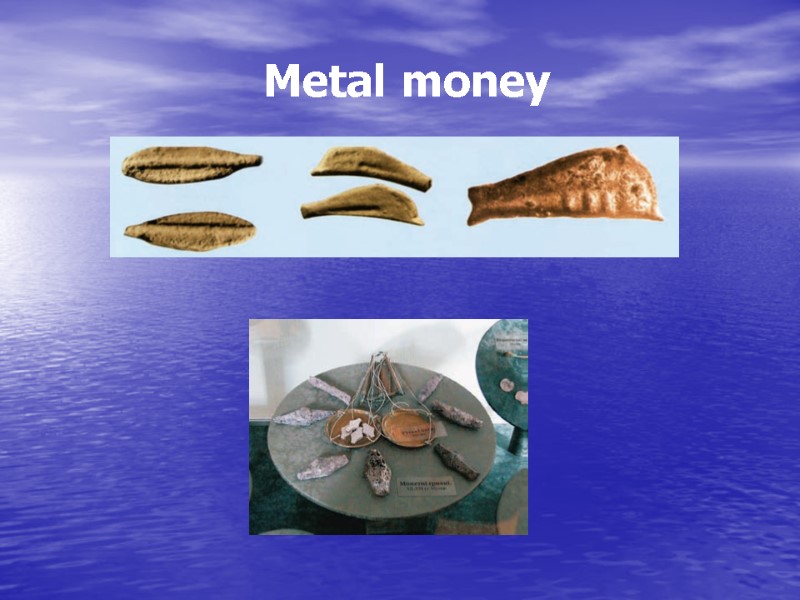 Metal money
Metal money
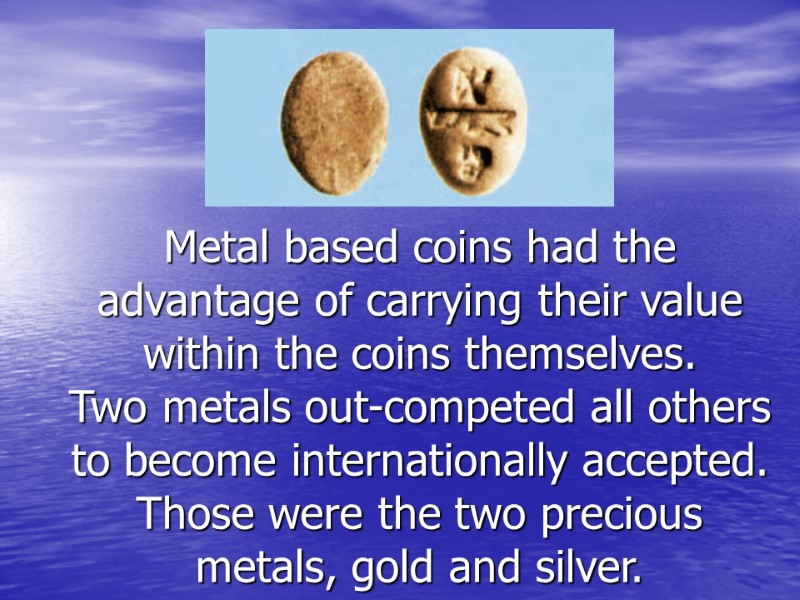 Metal based coins had the advantage of carrying their value within the coins themselves. Two metals out-competed all others to become internationally accepted. Those were the two precious metals, gold and silver.
Metal based coins had the advantage of carrying their value within the coins themselves. Two metals out-competed all others to become internationally accepted. Those were the two precious metals, gold and silver.
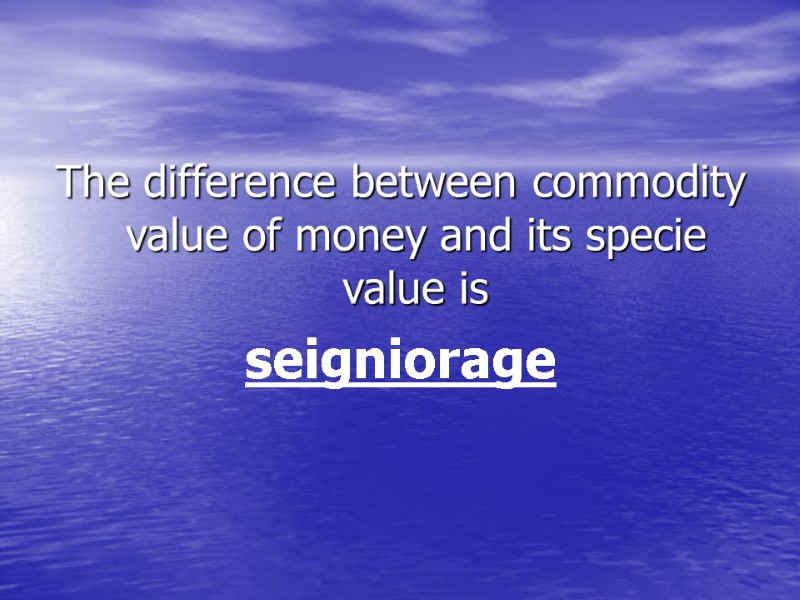 The difference between commodity value of money and its specie value is seigniorage
The difference between commodity value of money and its specie value is seigniorage
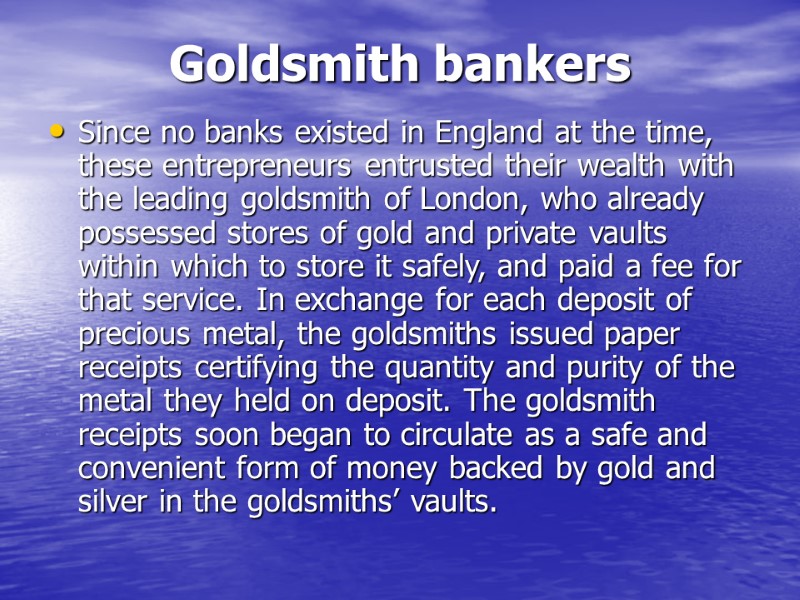 Goldsmith bankers Since no banks existed in England at the time, these entrepreneurs entrusted their wealth with the leading goldsmith of London, who already possessed stores of gold and private vaults within which to store it safely, and paid a fee for that service. In exchange for each deposit of precious metal, the goldsmiths issued paper receipts certifying the quantity and purity of the metal they held on deposit. The goldsmith receipts soon began to circulate as a safe and convenient form of money backed by gold and silver in the goldsmiths’ vaults.
Goldsmith bankers Since no banks existed in England at the time, these entrepreneurs entrusted their wealth with the leading goldsmith of London, who already possessed stores of gold and private vaults within which to store it safely, and paid a fee for that service. In exchange for each deposit of precious metal, the goldsmiths issued paper receipts certifying the quantity and purity of the metal they held on deposit. The goldsmith receipts soon began to circulate as a safe and convenient form of money backed by gold and silver in the goldsmiths’ vaults.
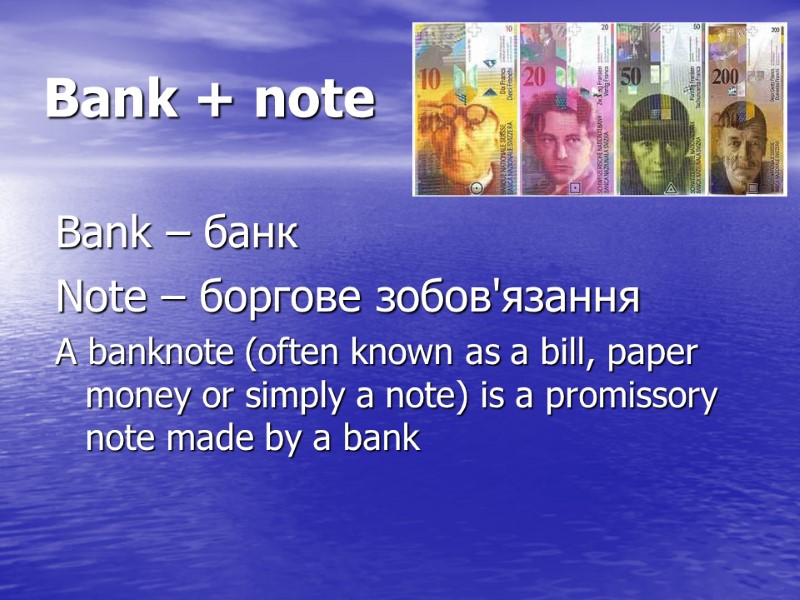 Bank – банк Note – боргове зобов'язання A banknote (often known as a bill, paper money or simply a note) is a promissory note made by a bank Bank + note
Bank – банк Note – боргове зобов'язання A banknote (often known as a bill, paper money or simply a note) is a promissory note made by a bank Bank + note
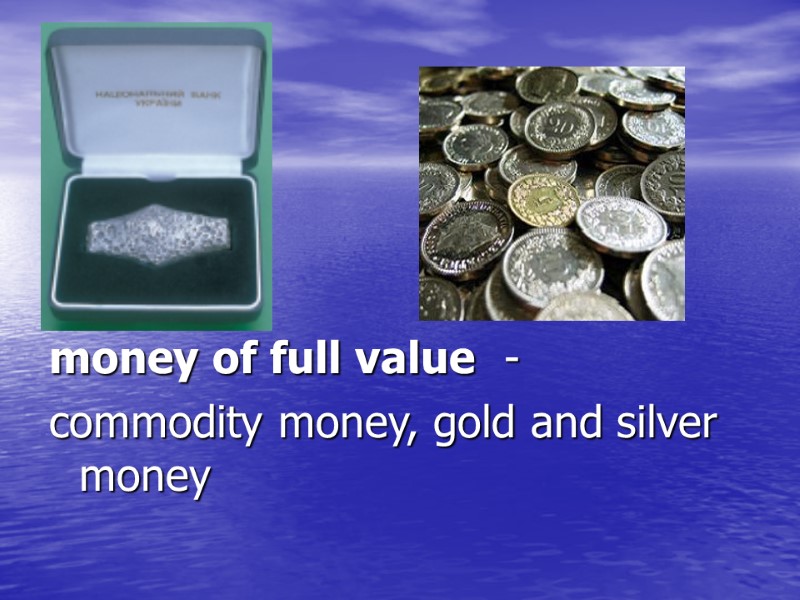 money of full value - commodity money, gold and silver money
money of full value - commodity money, gold and silver money
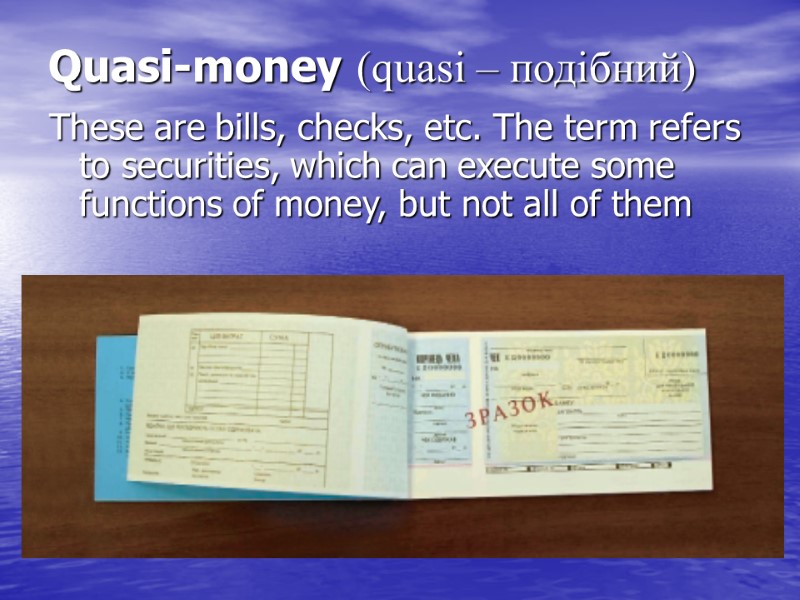 Quasi-money (quasi – подібний) These are bills, checks, etc. The term refers to securities, which can execute some functions of money, but not all of them
Quasi-money (quasi – подібний) These are bills, checks, etc. The term refers to securities, which can execute some functions of money, but not all of them
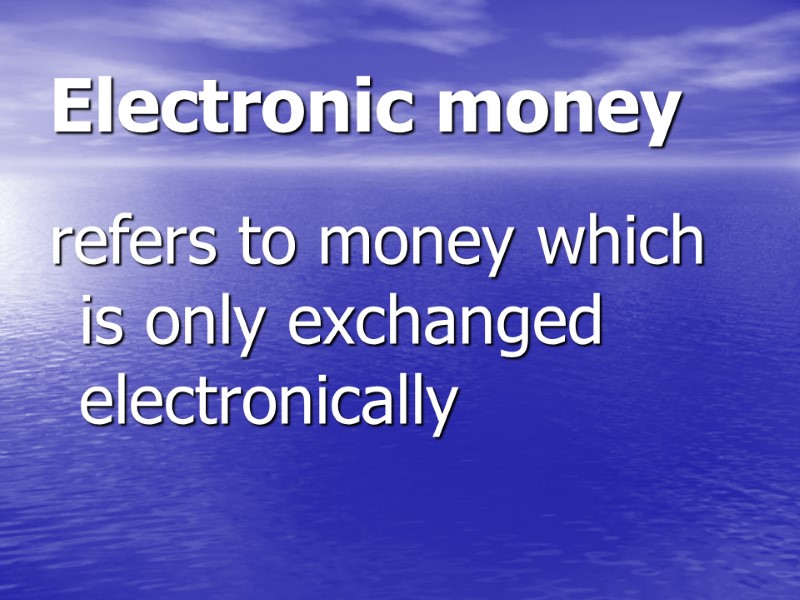 Electronic money refers to money which is only exchanged electronically
Electronic money refers to money which is only exchanged electronically
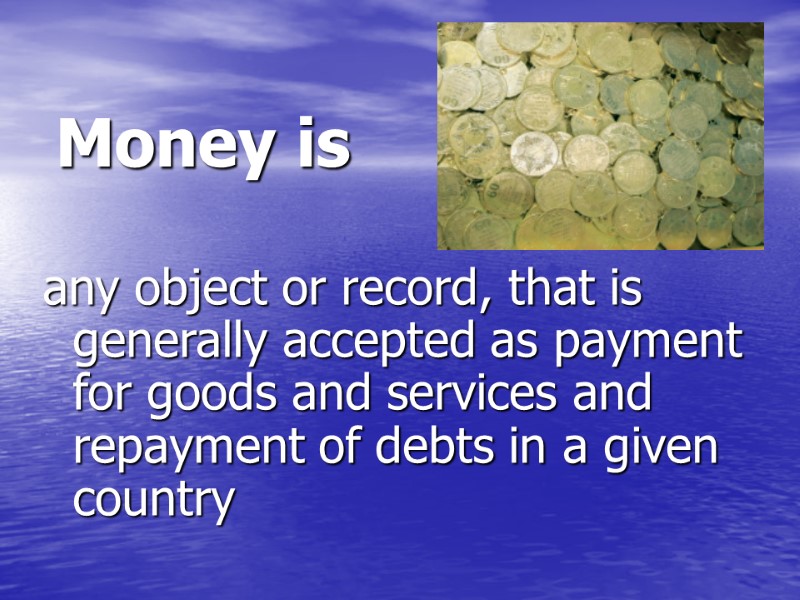 Money is any object or record, that is generally accepted as payment for goods and services and repayment of debts in a given country
Money is any object or record, that is generally accepted as payment for goods and services and repayment of debts in a given country
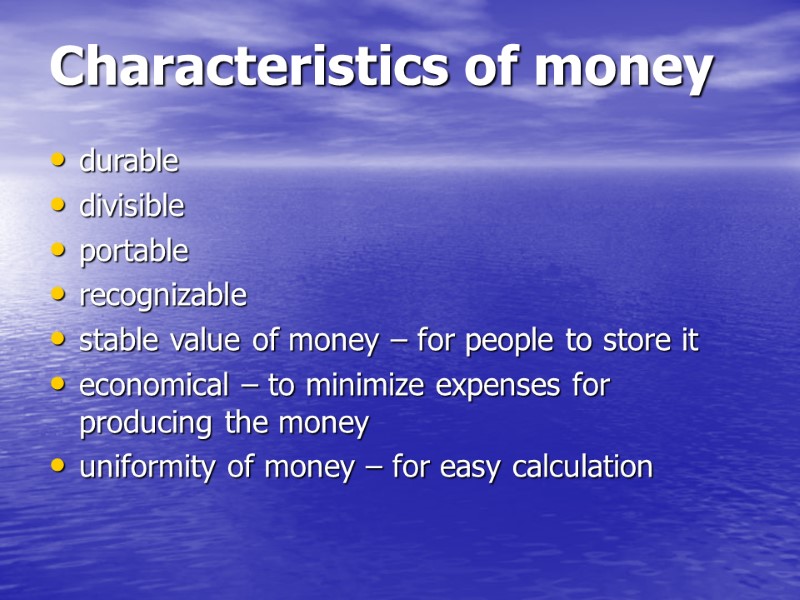 Characteristics of money durable divisible portable recognizable stable value of money – for people to store it economical – to minimize expenses for producing the money uniformity of money – for easy calculation
Characteristics of money durable divisible portable recognizable stable value of money – for people to store it economical – to minimize expenses for producing the money uniformity of money – for easy calculation
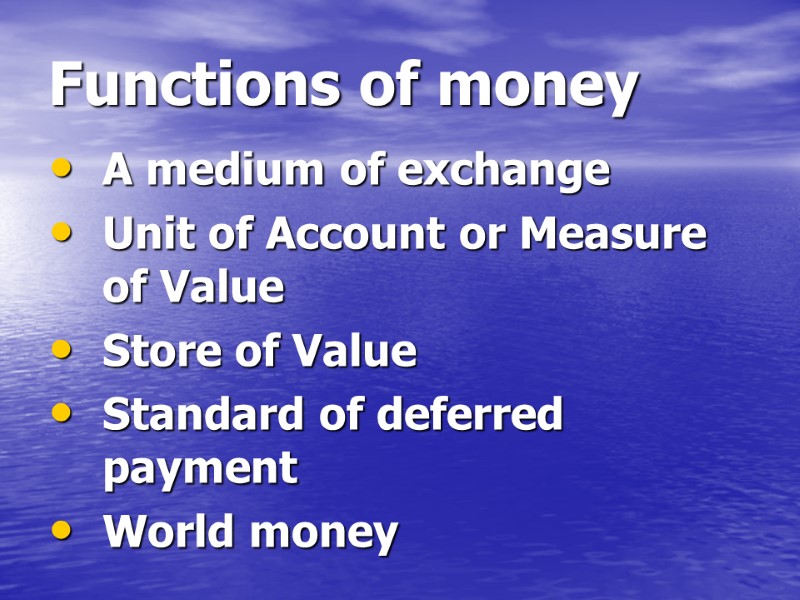 Functions of money A medium of exchange Unit of Account or Measure of Value Store of Value Standard of deferred payment World money
Functions of money A medium of exchange Unit of Account or Measure of Value Store of Value Standard of deferred payment World money
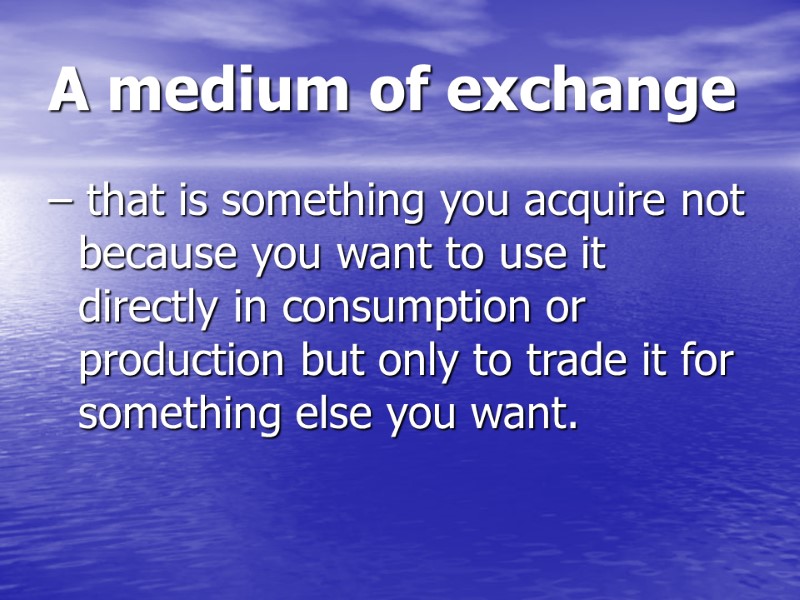 A medium of exchange – that is something you acquire not because you want to use it directly in consumption or production but only to trade it for something else you want.
A medium of exchange – that is something you acquire not because you want to use it directly in consumption or production but only to trade it for something else you want.
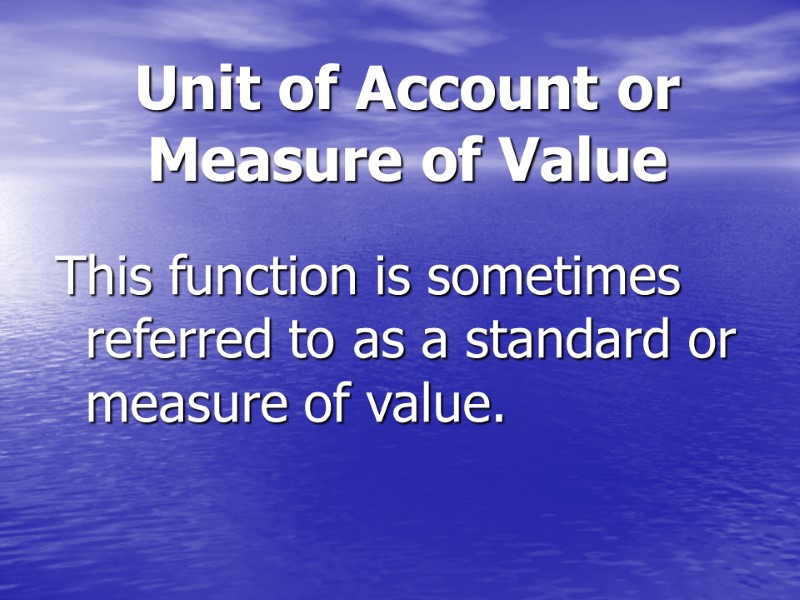 Unit of Account or Measure of Value This function is sometimes referred to as a standard or measure of value.
Unit of Account or Measure of Value This function is sometimes referred to as a standard or measure of value.
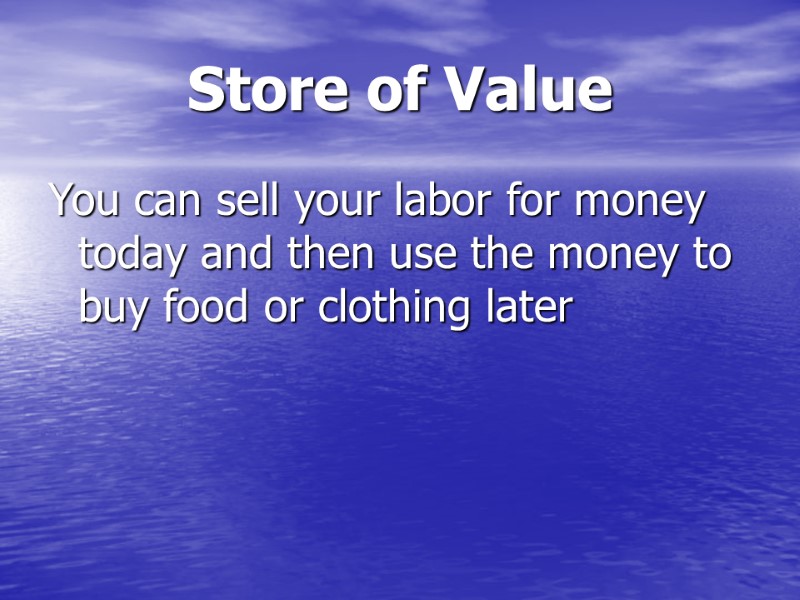 Store of Value You can sell your labor for money today and then use the money to buy food or clothing later
Store of Value You can sell your labor for money today and then use the money to buy food or clothing later
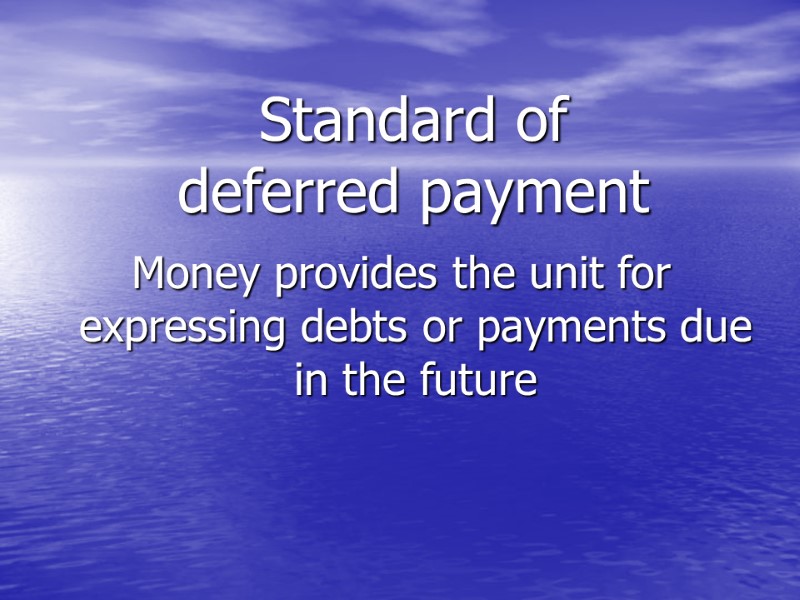 Standard of deferred payment Money provides the unit for expressing debts or payments due in the future
Standard of deferred payment Money provides the unit for expressing debts or payments due in the future
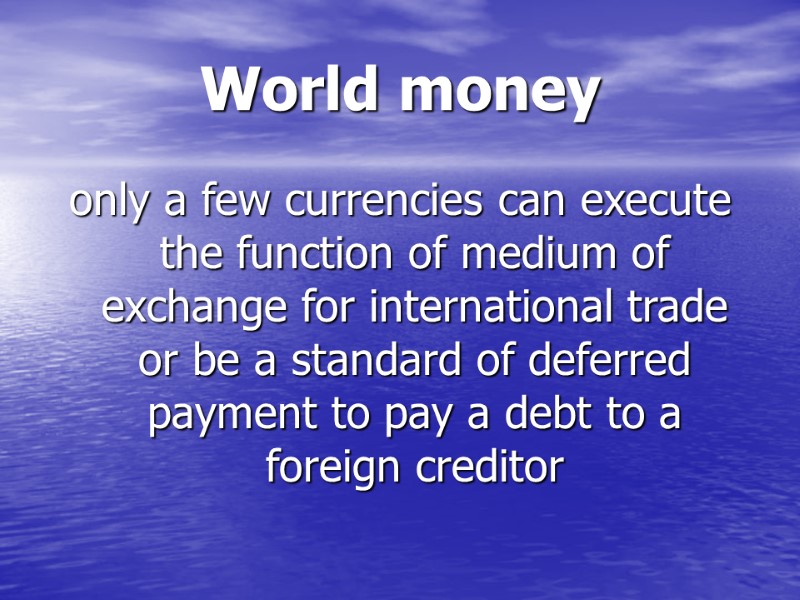 World money only a few currencies can execute the function of medium of exchange for international trade or be a standard of deferred payment to pay a debt to a foreign creditor
World money only a few currencies can execute the function of medium of exchange for international trade or be a standard of deferred payment to pay a debt to a foreign creditor









































